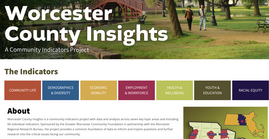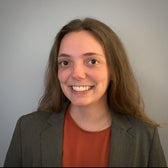Harvard Economist: Trends Could Boost Worcester Business
Worcester's economy could benefit from a nationwide trend of people moving into the downtown areas of smaller cities, a Harvard University economist told the annual meeting of the Worcester Regional Research Bureau on Wednesday.
Edward Glaeser, the guest speaker for the bureau's 28th annual meeting, held at the DCU Center, told the gathering of about 200 that the city has a lot on its side in its efforts to grow, especially shorter commute times for residents and workers, as well as housing prices that are lower than those to the east, especially in Boston.
"Middlesex County has done a wonderful job at shutting down (housing) development," Glaeser said, drawing a few chuckles. That offers a great opportunity for Worcester and surrounding towns, he said. He also cited Census data that showed a 6.3-percent population growth in Worcester County from 2000 to 2010 – the highest among mainland Bay State counties – and a 4.9-percent gain for the city, or about 8,000 people.
Glaeser, who specializes in urban economics, showed data that indicated the highest population growth from 2001 to 2008 was occurring within two miles of cities' downtown areas. That helps support the city's "smart growth" approach to downtown, focused chiefly around the CitySquare project.
He urged officials to focus on quality of life issues in Worcester, especially affordability. In that respect, he noted, it beats Boston. Glaeser also sees parallels to what happened in Seattle 40 years ago, when the aircraft manufacturing giant Boeing lost thousands of jobs, highlighted by a billboard that read: "Will the last person leaving Seattle turn out the lights."
But, buoyed by the rise of private entrepreneurship in such industries as computer software (such as Microsoft) and e-commerce (Amazon), the Seattle area bounced back.
Public policy can help, he noted, by attracting and retaining smart people, then getting out of the way and letting the private sector take over.
Glaeser's address came nearly a week after he wrote a Boston Globe op-ed column in which he said the slots parlor proposal for Worcester – which has since been withdrawn – would have been too risky for the city. He didn't address the slots proposal in his roughly 20-minute speech, but said he would entertain a question about it. He didn't get one.













0 Comments